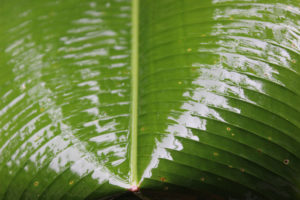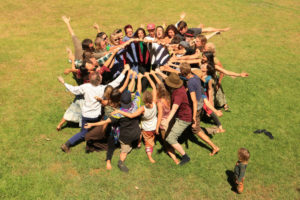Written by Chloe Gonzalez
Now more than ever, the call from mother Earth echoes loud and clear. This call implores us to rethink the way humans have come to behave in society as disconnected consumers and instead shift the focus to the implementation of systems that facilitate sustainable living. Permaculture is the word used to refer to this whole-systems thinking. Not only does it apply to agriculture, but also to all aspects of living – including building, education, and economics. Essentially, permaculture values caring for the Earth, caring for people and fair sharing.
The 12 essential permaculture principles are as follows (Holmgren, 1978):
-
- Observe and Interact – by engaging with nature, solutions may be more readily designed
- Catch and Store Energy – collecting resources when they are abundant also offers the opportunity to store and use them during times where they are lacking
- Obtain a yield – it is important to reap the benefits
- Apply Self Regulation and Accept Feedback – actively reflect and seek feedback to ensure that systems are working well
- Use and Value Renewable Resources and Services – seek to establish renewable systems that celebrate nature’s abundance
- Produce No Waste – use and value all resources so that waste is eradicated
- Design From Patterns to Details – first observe greater patterns in nature and society before focusing on the details
- Integrate Rather Than Segregate – utilise relationships as a means of supporting mutual growth
- Use Small and Slow Solutions – focus on developing a small and sustainable system, rather than struggling to maintain a bigger system that does not make use of local resources and is not as productive
- Use and Value Diversity – by valuing the diversity of the specific natural environment, a more resilient system is established
- Use Edges and Value the Marginal – make use of all aspects of a system for maximum diversity and productivity
- Creatively Use and Respond to Change – develop resilience by responding to issues with creativity and resourcefulness
Here at Paradise One, we embody these principles through our extensive permaculture gardens that supply most of our fresh produce for meals; our electricity is generated from 120 solar panels; and our water needs are met by our UV treatment of rainwater. In addition, we regularly host volunteers throughout the year who help out in the garden and the kitchen in return for accomodation and meals. This helps to ensure the sustainability of our system and also provides the volunteers with the chance to learn about sustainable practices that inspires positive change, while also allowing them to experience the beauty of the Byron Bay hinterland.






